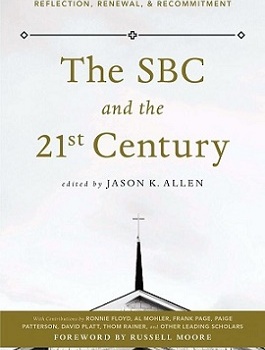Guest Post: “Preach the Word! Biblical Preaching and Congregational Renewal” by Tony Merida
Bart Ehrman serves as a religious studies professor at UNC Chapel Hill. Although he teaches the New Testament, he does not believe it is actually God’s Word. In fact, as a professing agnostic, Ehrman is known for debating evangelicals about the inspiration of Scripture. Every semester he begins one of his courses with a class exercise.[1] He begins, “How many of you believe the Bible is the inspired Word of God?” According to Professor Ehrman, the majority of students at UNC raise their hands. Then he asks, “How many of you have read [and he will select a popular novel] . . . The Hunger Games by Suzanne Collins?” Usually every hand goes up across the room, with only a few exceptions. Ehrman follows with a third question, “How many of you have read the entire Bible?” And virtually no one raises their hand. Then comes Ehrman’s punch. He inquires, “Now I can understand why you would read Collins’s book. It’s entertaining. But, if you really believed God wrote a book, then wouldn’t you want to read it?” Ehrman exposes a major problem. He highlights how those raised in a culturally Christian setting have some major inconsistencies with what they say and with what they do.
We show what we believe about the Bible by how we use the Bible—not merely by what we say about the Bible. When it comes to preaching, we show what we believe about the Bible by how we use the Bible in the pulpit. A high view of the Bible should lead to substantive, biblical preaching. Paul moves from the doctrine of the inspiration of Scripture in 2 Timothy 3:16–17 (ESV) to the command to preach it in 2 Timothy 4:1. It is a natural transition. If God wrote a book, then should you not want to preach it?
Strangely, many preachers today affirm the inspiration of Scripture, waving it in the air, claiming that the Bible is “infallible, inerrant, inspired” (and other “I” words!), but for whatever reason, they fail to deliver Word-driven, Bible-saturated, expositional messages. What’s more, others in the Christian community downplay the importance of weekly, Bible-saturated, pastoral preaching altogether. They seem to have adopted the culture’s negative view of preaching.
PASTOR DO NOT PREACH
Modern-day people have an increasingly negative vibe when hearing or talking about “preaching.” Madonna used to sing “Papa Don’t Preach,” and today many are now saying, “Pastor, do not preach.” Church inviter cards say things like, “Come to our worship service. Our pastor won’t preach to you.” The pastor is viewed as a speaker, a storyteller, or an advice giver, but not a preacher. This spirit reflects a larger desire to keep Christianity from being so “strange” in the eyes of culture. But it will not work. Christianity is strange. Look at how Paul was viewed in the book of Acts (e.g., Acts 26). Look at how Paul talked about preaching in 1 Corinthians 2:1–5. It is a strange method, a strange message, and a strange man delivering the message.
An additional reason for this negative vibe concerns the definition of preaching itself. People associate preaching with yelling, agitating others, ranting, or shouting moral “dos and do nots.” But furious moralizing is not preaching, and personal ranting is not preaching. One can rant about anything. One can yell and throw a fit about anything. What makes preaching “preaching” is the gospel message. Preaching is bound up with the announcement of the good news. Preaching is explaining what God has said in his Word and declaring what God has done in his Son and applying this message to the hearts of people. One may or may not yell, pace, or pound a pulpit in announcing the gospel. The Lord has used all sorts of styles and temperaments throughout history to proclaim his Word. Further, some in the culture react negatively to preaching because of the overall antiauthority mood of the day. But this mood is not new. Just read the opening pages of Genesis. We must remember that our authority as preachers is a derived authority. Our authority comes from God’s Word, and if we are heralding his Word, then we should not shy away from preaching.
Finally, some have a negative view of preaching because they have never heard good preaching. Sadly, there is a great display of mediocrity in pulpits. Outsiders often view preachers as being boring (or fanatical), out of step with culture, and unaware of people’s questions and worldviews. But in advocating biblical preaching, I am not advocating poor preaching. I am not advocating dry preaching. I am not advocating insensitivity to people nor being culturally ignorant. Good preaching takes truth to struggle. Good preaching shows an awareness of competing worldviews and cultural issues; it contextualizes the message to a given audience. It establishes points of contact with people and then makes points of conflict with people as a Christ-centered worldview is proclaimed and explained.
____________________________________________________
[1]I have heard Ehrman use this illustration in public debates. I have also had seminary students tell me about being in Herman’s class and participating in this exercise personally.
*This article is an excerpt from The SBC and the 21st Century: Reflection, Renewal, and Recommitment. Edited by Jason K. Allen (B&H Academics). The culmination of a landmark symposium on the campus of Midwestern Seminary, this book features contributions from President Allen, Frank Page, Ronnie Floyd, Thom Rainer, Albert Mohler, Paige Patterson, David Platt, Danny Akin, Justin Taylor, Collin Hansen, and more on the future of the Southern Baptist Convention.*
Available to purchase online at Amazon.com and B&H Publishing and in LifeWay Christian Stores. Learn more at jasonkallen.com/sbc21book.
topicsSBC, Southern Baptist Convention

Comments are closed.